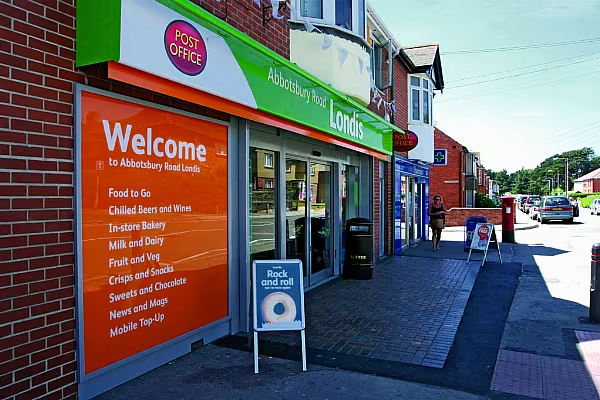This is how a pile of cheese beats an iPhone.
U.K. wholesaler Booker offers the sorts of everyday products you wouldn't think twice about. There's the loaf of bread you pick up from the corner shop, or the condiments on top of a pub-lunch baked potato.
But there's been nothing pedestrian about its returns.
The company has handed 205 percent to shareholders in the past five years, topping Apple's 111 percent and well above the 30 percent for the FTSE All-Share index.
Booker has come a long way under the leadership of Chief Executive Charles Wilson, who has transformed its operations and balance sheet. The company said Thursday profits rose to 150.8 million pounds ($221 million) in the year to March 25, a far cry from 26.7 million pounds when it relisted in 2007.
At the same time, its latest net cash position is 127 million pounds even after it spent 40 million pounds to acquire the U.K.'s Budgens supermarket and Londis corner-shop chains -- a very different story from the 360 million pounds of net debt it had in 2005.
That progress is now reflected in Booker's valuation. The shares trade on a forward price earnings multiple of 22 times, compared with 15 times for Metro, Germany's largest retailer, and the 16 times for the FTSE All-Share index.
While it's unlikely Booker's outsize returns will be repeated, there's still more good news ahead.
Its shares are underpinned by the prospect that the cash it throws up will continue to find its way to special dividends, on top of the 180 million pounds paid over the past three years. Assuming the 2017 special payout is similar to the 57 million pounds in 2016, the prospective dividend yield is about 5 percent, beating the FTSE All Share's 4.2 percent.
Wilson has also been canny at spotting consolidation opportunities. There could be more to come.
Metro is splitting its European cash-and-carry business from its consumer electronics arm, and if it doesn't trade as planned, a tie-up with Booker could be on the cards. Booker already has a track record of turning around Metro divisions. After it acquired the company's U.K. businesses in 2012, it moved them from loss into profit.
And Booker could even be a target itself. While Amazon has long been linked with a bid for Ocado, the online supermarket chain, Booker deserves a look-in.
Wilson has been quietly building online sales, which were almost 1 billion pounds in 2016, about a fifth of the total. All of these were delivered to the premises of Bookers' small-business customers.
This shows that Wilson has created a supply chain for fresh and chilled food, capable of moving products efficiently from suppliers' premises to customers' shops. That is not only something that Amazon will need if it is serious about selling food in the U.K., but it is notoriously difficult to build.
Booker would also bring Amazon access to its store network, expanding its locations for click-and-collect services in Britain. So if Booker shareholders wanted more excitement, that may be worth pushing for.
Booker might not be so boring after all.
This column does not necessarily reflect the opinion of Bloomberg LP and its owners.
News by Bloomberg, edited by ESM. To subscribe to ESM: The European Supermarket Magazine, click here.














